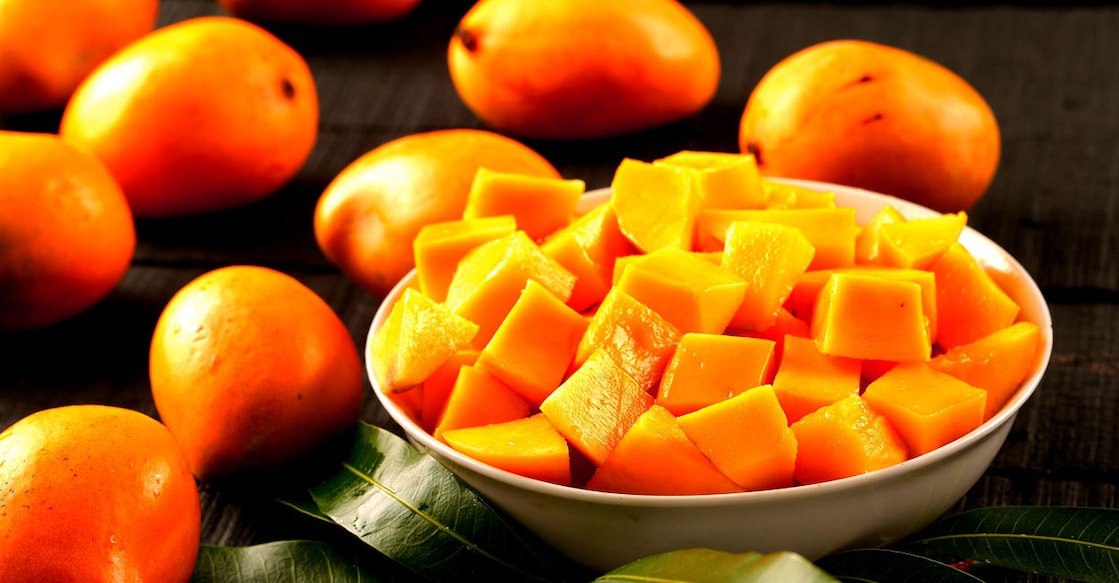Mango math: One a day or two? Where do we draw the line?

Mail This Article
Summer’s here, and mangoes are everywhere. In your fruit basket. In your neighbour’s fridge. In your WhatsApp family group chat. But for something that seems so innocent, mangoes raise an age-old question: How many is too many?
Are they good for you? Can they make you fat? Should you eat them with salt, or made into a smoothie, or not at all if you’re “watching sugar”? This is your unofficial–but fact-checked–guide to doing mangoes right.
First things first: How much mango is okay?
One medium-sized mango a day is totally fine for most healthy adults. That’s around 150–160 calories and 45 grams of natural sugar (USDA FoodData Central). It also gives you a hefty boost of Vitamin C, Vitamin A, and fibre—plus that sheer mango joy which isn’t technically quantifiable, but should be.
If you’re diabetic or managing blood sugar levels, you don’t have to ditch mangoes altogether. Just stick to half a fruit, and pair it with protein or fat to keep the sugar spike mellow. Think: mango with a spoon of yogurt, or a small bowl of curd.

When should you eat it?
Timing matters more than you think.
- Morning: Ideal. Your metabolism’s humming, and your body can handle the natural sugars well.
- Post-workout: Great for energy refill. Mango beats those sad protein bars anyway.
- Late at night: Not a great idea—especially if it’s part of a midnight mango milkshake moment.
Should you drink your mangoes?
You can. But should you?
Let’s be real: that mango shake at your local juice joint probably comes with full-fat milk, added sugar, maybe even ice cream pretending to be “just a little.” Suddenly your 150-calorie fruit has turned into a 500-calorie sugar bomb.
If you want it in liquid form, make it at home, go easy on the sugar, and maybe skip the condensed milk your aunt insists on.
Pair it smart
Mango on its own? Delicious. Mango with backup? Even better. Add:
- Yogurt for a protein hit
- Chia seeds for fiber and texture
- A handful of nuts to slow sugar absorption
Why? Because eating mango with other macronutrients helps balance blood sugar and keeps you full longer. That’s not diet culture—it’s science. (Harvard Health)
What about raw mango?
Raw mango (kachcha aam) is the sour sibling you shouldn’t ignore. It’s high in vitamin C, a natural coolant, and makes everything from chutney to Kerala-style curries punchy and addictive. Just avoid eating too much raw mango with salt if you’re watching sodium or have sensitive teeth (you know who you are).
Do mangoes make you gain weight?
No. Eating too many mangoes might—just like eating too much of anything. But a reasonable serving of mango is not going to derail your health goals. It’s a nutrient-dense fruit with fiber, antioxidants, and way more to offer than empty calories.
Also, let’s be honest: nobody ever blamed mangoes when they were four samosas deep.
So go on. Slice that mango, score it into cubes, suck the seed clean like your childhood depended on it. Mango season doesn’t last forever. Eat it right—but most of all, eat it with love.

